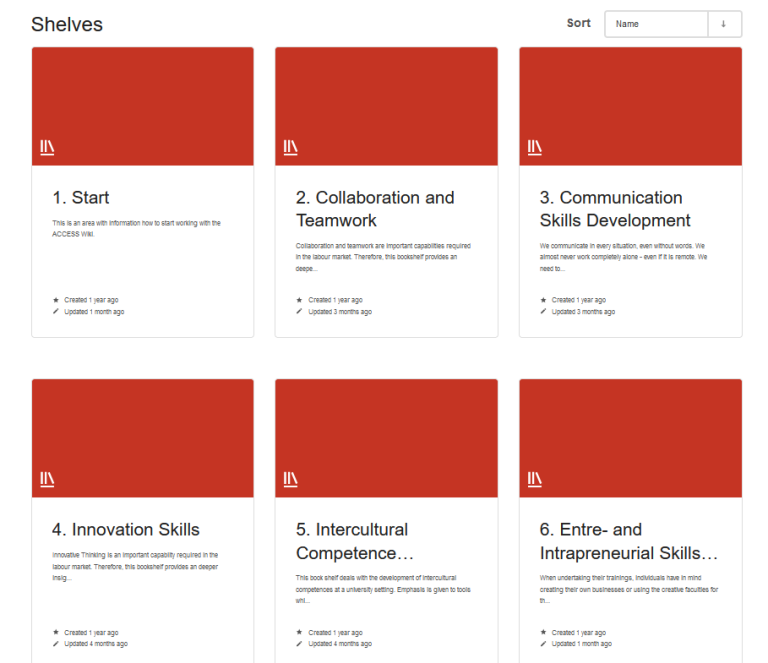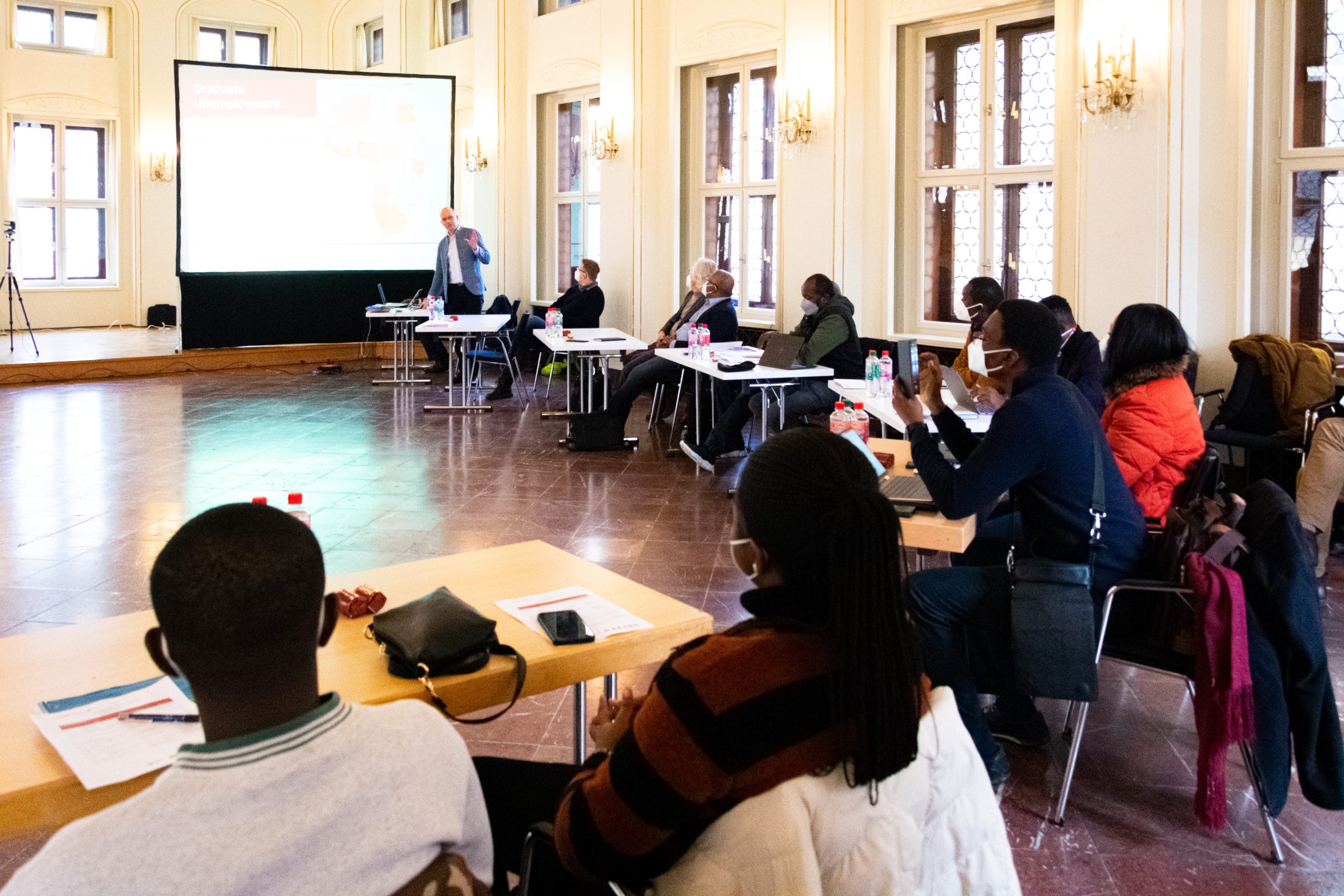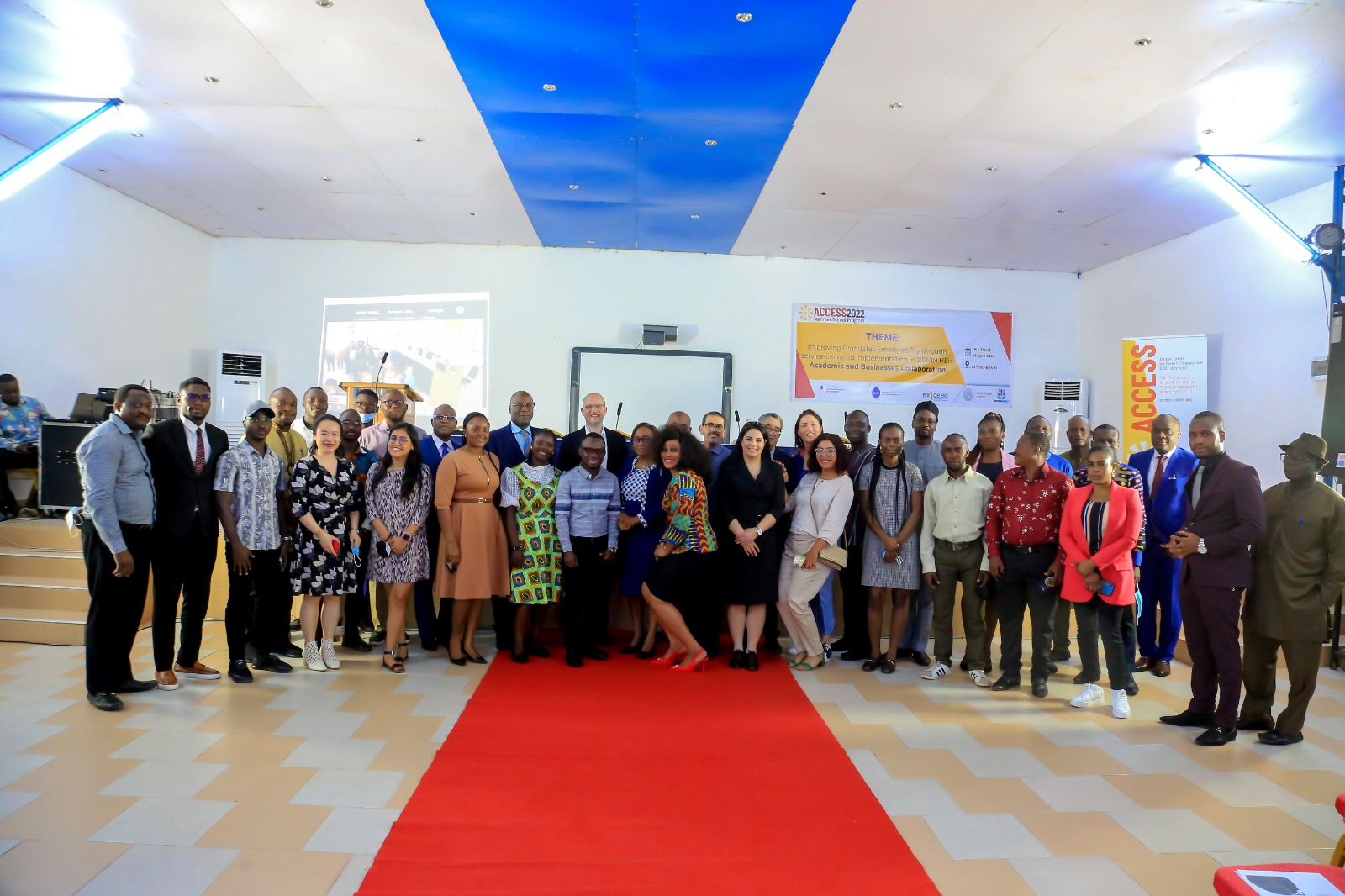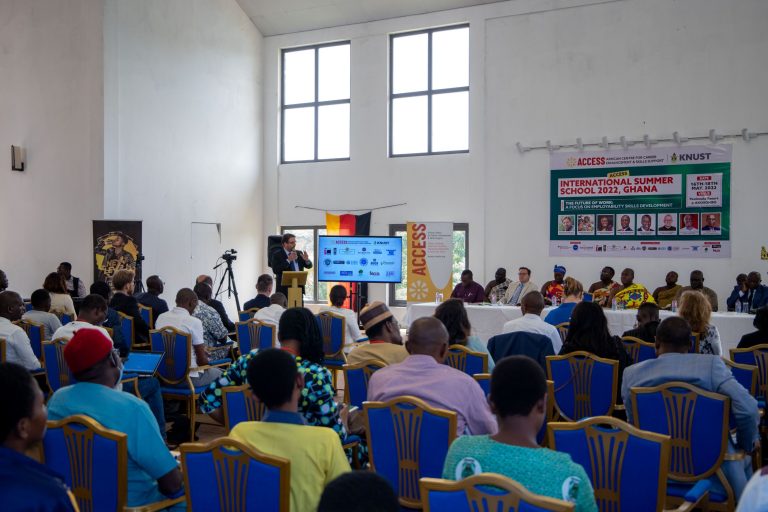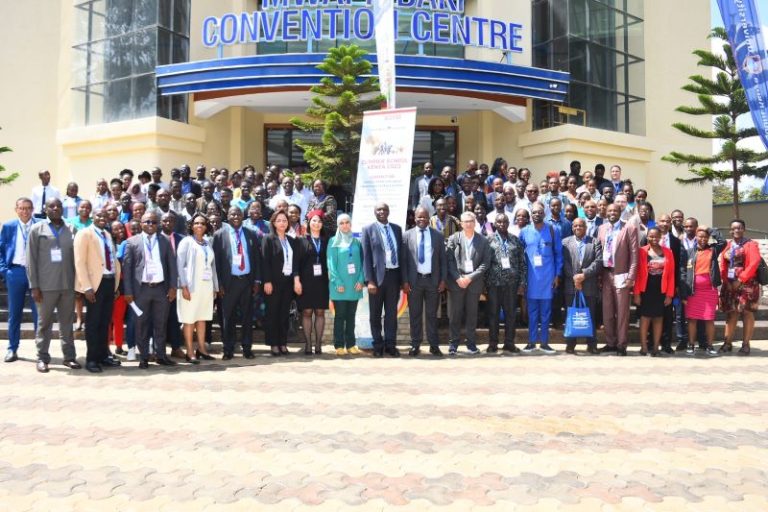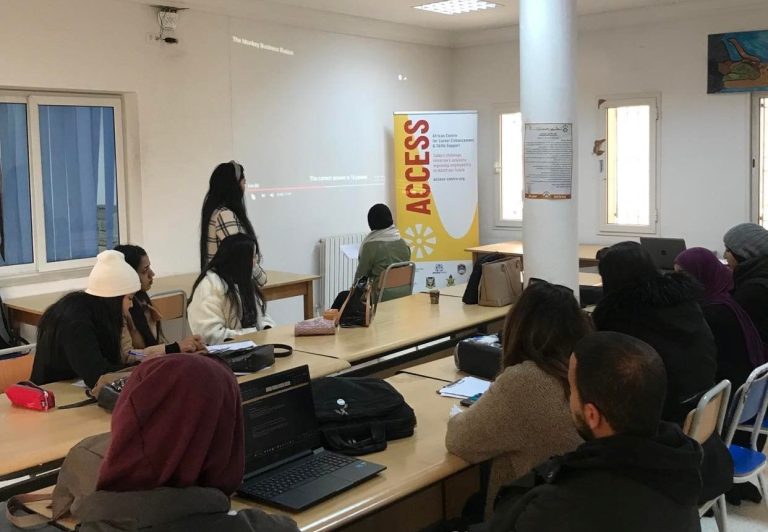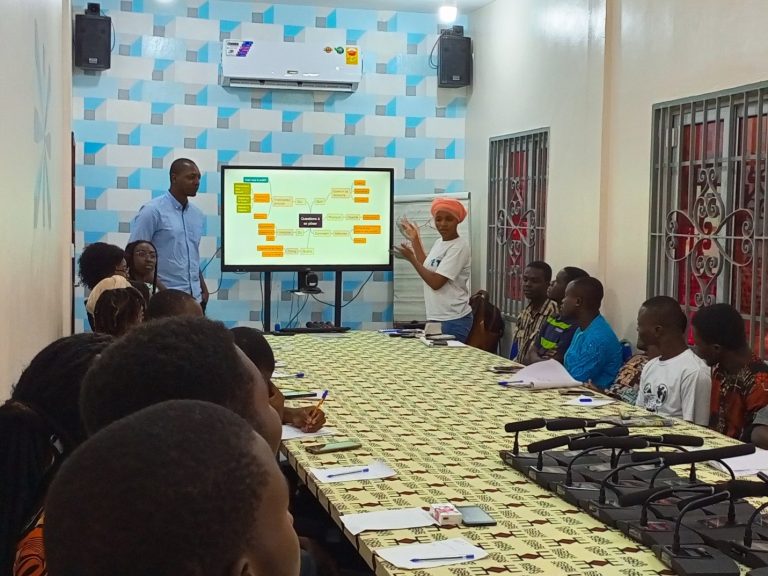Capacity Building
CAPACITY BUILDING PILLAR
Introduction
The main activities of the capacity building pillar includes a Skills Development Toolkit, an e-coaching concept and the roll-out of the capacity building program. The Skills Development Toolkit provides faculty with a range of teaching approaches and methods to deliver different learning approaches to their students: Service Learning, Intrapreneurial Learning, and Performance Training. Content for the Skills Development Toolkit and concepts have been compiled in the ACCESS Wiki.
The e-coaching aims to test existing collaborative digital tools (mainly apps) and develop application procedures in the e-coaching of practice-oriented projects at universities, focusing on the use of free web-based tools that mainly require a tablet or smartphone for their use. This facilitates the learning and coaching process for students and faculty in a modern digital way.
The roll-out approach makes it possible to reach about 30 HEIs in selected partner countries – through the direct higher education partners (members of the project consortium of ACCESS), which act as anchor universities in each African country. This allows the Skills Development Toolkit (Wiki) to be tested and implemented within their own organizations.
Core Activities & Tasks
ACCESS Wiki as Skills Development Tool
The Capacity building pillar is creating and compiling content and teaching concepts for the ACCESS Wiki especially for lecturers of all African partners of the ACCESS network. For this, the ACCESS Wiki is introduced among the ACCESS network as Skills Development Toolkit for lecturers by lecturers.
Its main function is serving as a knowledge platform of existing learning tools and new approaches of teaching methods to promote the employability in Higher Education Institutions (HEIs).
You can easily find the ACCESS Wiki on the upper right in the navigation of this website – alternatively click on the graphic above.
Development of e-coaching concept
The intention of the e-coaching concept is to facilitate the learning and coaching process for students and university lecturers in a digital way. The goal is to use existing collaborative internet-based tools and develop application offerings in the context of e-coaching for practice-based projects at universities and Higher Education Institutes (HEIs).
To realize that, an e-coaching handbook has been compiled and implemented in the ACCESS Wiki, to give like a kind of guideline for creating a helpful and working e-coaching environment. The e-coaching handbook can be found here in the ACCESS Wiki.
ACCESS International Summer Schools
One major event throughout the year are the ACCESS International Summer Schools, which are hosted by the ACCESS partner universities in alternating order. Originally planned were two Summer Schools per year.
Since the start of the ACCESS project in 2020, restrictions on international travel and meetings caused by the COVID-19 pandemic have prevented in-person interactions between the Leipzig team and the African partners until the beginning of 2022. In February 2022 finally the first in-person meeting could be held in Leipzig hosted by Leipzig University. From that point of time the ACCESS International Summer Schools could be hosted by the African partners as it was originally planned.
A review of the ACCESS International Summer Schools can be found below.
Roll-out Capacity Building Programme
The roll-out of the capacity building programme successfully implemented a series of comprehensive training and development activities across ACCESS partner countries. These activities significantly enhanced teaching quality at 34 participating Higher Education Institutions (HEIs) by focusing on innovative teaching methodologies, problem-oriented learning, ICT-based methods, and employability skills. The substantial number of 536 trained lecturers has helped foster a more interactive and effective learning environment for students, ultimately aiming to improve educational outcomes and graduate employability.
In 2021, a transnational summer school and various workshops were conducted online due to the COVID-19 pandemic. These events laid the foundation for the development of the ACCESS Wiki (Skills Development Toolkit) and established the e-coaching concept. These initiatives provided the basis for roll-out activities using a Training of Trainers (ToT) approach in the following years at the ACCESS partner universities and their affiliated partners.
In 2022, the roll-out activities began for African partners. This involved organising various training formats, such as individual ToTs by partner universities as well as trainings during the summer schools. A total of 131 lecturers (around 25% women) participated in these programs. Specific activities included service learning workshops in Benin and Rwanda. In Tunisia, university lecturers tested the ACCESS Wiki for integration into their teaching of various modules. Additionally, lecturers were trained in problem-oriented teaching and learning methods, and further training was provided on ICT-based teaching methods.
Extensive training sessions were also conducted across partner countries in 2023, with participation increasing to 381 lecturers (approximately 30% women). Activities included a LinkedIn workshop and a soft skills curriculum development workshop in Benin and multiple ToT workshops on ACCESS pillars in Ghana. Workshops at various universities in Nigeria, including ACCESS partner University of Ibadan and universities from their affiliated network, such as Afe-Babalola University, Obafemi Awolowo University, University of Port Harcourt, University of Abuja, and Bayero University focused on capacity building and enhancement of employability skills. In Kenya, a five-day ToT capacity building session was conducted, while Rwanda saw training workshops on employability and entrepreneurship. In Tunisia, round table discussions and workshops were held on teaching entrepreneurial skills and employing the ACCESS Wiki platform for interior design students.
The roll-out implementation by African partner universities, conducted in consultation with Leipzig University, is set to continue through 2024. This ongoing collaboration ensures that the training and development activities initiated in previous years will be sustained and expanded. The focus will remain on enhancing teaching quality through innovative methodologies, problem-oriented learning, and ICT-based methods, while also strengthening employability skills among graduates.
Some examples of Training of Trainers activities are introduced in the following boxes.
Contact

Sandy Adam
Coordinator for ACCESS (Capacity Building)
Leipzig University | Sports Faculty
sandy.adam@uni-leipzig.de

Matthias Grahl
Coordinator for ACCESS (Capacity Building)
Leipzig University
Faculty of Economics and Management Science
matthias.grahl@uni-leipzig.de
